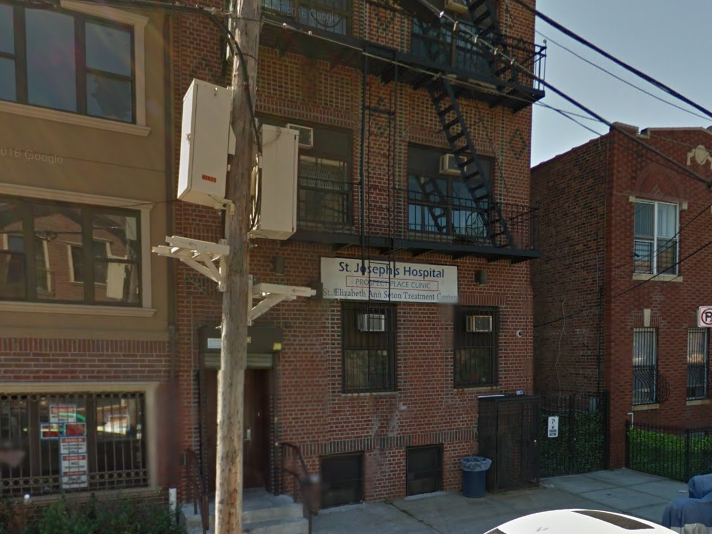Recovery housing can assist people make the transition to an independent lifefor example, helping them learn how to manage finances or look for work, as well as connecting them to support services in the neighborhood. Scientific research considering that the mid-1970s shows that drug abuse treatment can assist many drug-using wrongdoers change their attitudes, beliefs, and behaviors towards substance abuse; avoid regression; and effectively remove themselves from a life of compound abuse and crime.
Nevertheless, numerous wrongdoers do not have access to the types of services they need. Treatment that is of poor quality or is not well matched to the needs of culprits might not work at lowering substance abuse and criminal behavior. In addition to the basic concepts of treatment, some factors to consider particular to culprits include the following: Treatment must consist of advancement of specific cognitive skills to assist the wrongdoer adjust mindsets and beliefs that cause substance abuse and criminal activity, such as feeling entitled to have things one's own way or not comprehending the effects of one's behavior.
Treatment planning must include customized services within the reformatory as well as transition to community-based treatment after release. Ongoing coordination between treatment service providers and courts or parole and probation officers is necessary in dealing with the intricate needs of wrongdoers re-entering society. Drug abuse https://central.newschannelnebraska.com/story/42141829/addiction-treatment-center-in-miami-educates-community-about-drug-rehab alters the function of the brain, and many things can "activate" drug cravings within the brain.
According to SAMHSA's National Survey on Drug Use and Health, 22.5 million people (8.5 percent of the U.S. population) aged 12 or older needed treatment for an illicit * drug or alcohol use issue in 2014. Only 4.2 million (18.5 percent of those who required treatment) got any compound usage treatment in the very same year.
* The term "illegal" describes making use of controlled substances, including cannabis according to federal law, and misuse of prescription medications. Drug dependency can be treated, however it's not simple. Addiction treatment must assist the individual do the following: stop utilizing drugs stay drug-free be efficient in the household, at work, and in society Successful treatment has a number of actions: detoxing behavioral counseling medication (for opioid, tobacco, or alcoholism) evaluation and treatment for co-occurring psychological health concerns such as anxiety and anxiety long-term follow-up to prevent relapse Medications and devices can be used to handle withdrawal signs, avoid regression, and treat co-occurring conditions.
The Buzz on Who Has The Best Sex Addiction Treatment In The Country Mississippi
However, many culprits do not have access to the types of services they require. For additional information about drug dependency treatment, visit: www.drugabuse.gov/publications/principles-drug-addiction-treatment-research-based-guide-third-edition For information about drug dependency treatment in the criminal justice system, go to: www.drugabuse.gov/publications/principles-drug-abuse-treatment-criminal-justice-populations For step-by-step guides for people who think they or a liked one may require treatment, visit: www.drugabuse.gov/related-topics/treatment Easy-to-Read Drug Information on Treatment - Has images and videos to help readers understand the text.
Center for Behavioral Health Stats and Quality (CBSHQ). 2014 National Survey on Drug Usage and Health: In-depth Tables. Rockville, MD: Substance Abuse and Mental Health Services Administration; 2015. Drug Abuse and Mental Health Providers Administration (SAMHSA). National Survey of Substance Abuse Treatment Provider (N-SSATS): 2013. Data on Compound Abuse Treatment Facilities.
HHS Publication No. (SMA) 14-489. BHSIS Series S-73. This publication is available for your usage and might be replicated without authorization from NIDA. Citation of the source is valued, using the following language: Source: National Institute on Drug Abuse; National Institutes of Health; U.S. Department of Health and Human Being Services.
Drug treatment is planned to assist addicted individuals stop compulsive drug seeking and use. Treatment can take place in a range of settings, take many various forms, and last for different lengths of time. Because drug dependency is normally a persistent condition defined by periodic regressions, a short-term, one-time treatment is normally not adequate.

There are a range of evidence-based techniques to dealing with dependency. Drug treatment can include behavior modification (such as cognitive-behavioral therapy or contingency management), medications, or their mix. The specific kind of treatment or combination of treatments will vary depending on the client's individual needs and, often, on the types of drugs they utilize.
The Facts About What Affectrs Retention Of Women In Postnatal Drug Addiction Treatment Rpograms Uncovered
Disulfiram, acamprosate, and naltrexone are medications available for treating alcohol dependence,1 which typically co-occurs with other drug dependencies, consisting of dependency to prescription medications. Treatments for prescription drug abuse tend to be comparable to those for illicit drugs that impact the very same brain systems. For example, buprenorphine, utilized to deal with heroin addiction, can also be used to treat addiction to opioid discomfort medications.

Behavior modifications can assist encourage people to take part in drug treatment, deal strategies for dealing with drug cravings, teach methods to prevent drugs and prevent regression, and assistance individuals deal with relapse if it occurs. Behavioral therapies can likewise assist people enhance interaction, relationship, and parenting abilities, in addition to household dynamics.
Group therapy can provide social reinforcement and aid impose behavioral contingencies that promote abstaining and a non-drug-using way of life. A few of the more established behavioral treatments, such as contingency management and cognitive-behavioral therapy, are likewise being adjusted for group settings to enhance effectiveness and cost-effectiveness. However, especially in teenagers, there can also be a risk of unintended damaging (or iatrogenic) results of group treatmentsometimes group members (especially groups of highly delinquent youth) can reinforce substance abuse and thus thwart the purpose of the therapy.
Because they work on various elements of addiction, combinations of behavior modifications and medications (when available) usually seem more efficient than either technique used alone. Lastly, individuals who are addicted to drugs often experience other health (e.g., depression, HIV), occupational, legal, familial, and social issues that should be attended to simultaneously.
Psychoactive medications, such as antidepressants, anti-anxiety representatives, mood stabilizers, and antipsychotic medications, may be Alcohol Rehab Center crucial for treatment success when clients have co-occurring mental illness such as anxiety, anxiety conditions (including trauma), bipolar illness, or schizophrenia. In addition, the majority of people with severe dependency abuse several drugs and require treatment for all substances abused.
The Main Principles Of How Sextual Addiction Treatment Fails When Working With Gay And Bisectual People
For the most part, the objective of treatment for drug dependency or abuse is not just to get the individual to stop utilizing drugs however to likewise return the specific to a productive member of society. The goal of drug treatment is to not only to stop compulsive drug seeking and use however to help the patient end up being a working family member, more efficient in ending up being used and improve his or her medical condition.
According to the Workplace of National Drug Control Policy, effective drug treatment should, at the really least, result in the following results: Minimized use of primary drugImprove work functioningImproved academic statusImproved interpersonal relationshipsImproved general health and medical statusImproved legal statusImproved psychological health status Therefore, to measure the efficiency of drug treatment programs, the rate of abstaining is not the only aspect to be considered, but also the performance of the client in the house, work and in the neighborhood (what is evidence based treatment for addiction).